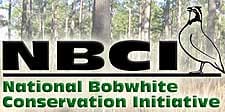Quail – Are We Ready For Success
By Don McKenzie, NBCI Director


Knoxville, TN –-(Ammoland.com)- You can’t handle the truth! Jack Nicholson to Tom Cruise, in the movie, “A Few Good Men.”
Every person taking the time to read this blog wants earnestly to do their part to help restore abundant bobwhites and grassland birds, and their habitats. That dedication to the resource is not in question.
What I do wonder lately is whether bobwhite conservationists are really ready for success.
I get asked weekly if the NBCI is “successful,” if there is real hope for quail. The Initiative is, after all, almost 10 years old. I can credibly cite a long and profound list of improvements in the energy levels, activities, organization, infrastructure, policy improvements, vision, strategy, capacity and profile of bobwhite conservation (e.g., see the “NBCI Accomplishments and Milestones” fact sheet at www.bringbackbobwhites.org ). These are important and necessary steps that add real value to, and enable, full-speed implementation of the NBCI.
Winning Propositions
But what people really want to know is “has the NBCI succeeded anywhere in restoring sustainable, huntable populations of wild quail?” That question is harder to answer – not because there isn’t lots more quail habitat restoration happening now than before. Not because quail habitat restoration isn’t working. But because we are afraid of ourselves.
Success breeds success. An initial trickle of successes will stimulate more successes. Eventually a growing stream of quail restoration success stories across the country can fuel a burgeoning movement. People want to be part of and to invest in winning propositions. Building this positive feedback loop is vital for the long-term viability, sustainability and growth of the NBCI; indeed, for simply keeping hope alive.
However, wild quail hunting is subject to the laws of supply and demand. A vast reservoir of demand for quality wild bobwhite hunting overwhelms the diminishing number of places that can supply it. When demand exceeds supply, costs rise (Economics 101). The prevalence of and prices for leasing increases; hunter competition, crowding and conflict increases; hunting efficiency declines; harvest mortality increases toward additive levels; overall quality of the experience declines; etc. With the severe droughts [and now fires] lately in Texas and Oklahoma – the very regions that so many eastern quail hunters travel and cling to – the shortage will become even more acute.
Mums The Word
The NBCI website’s “Success” page currently presents only eight success stories from six states. Even though we have solicited far and wide for success stories to highlight, the stories are slow to come. Thus, it appears to readers that this is all we have to show for the NBCI.
To the contrary, I know of several other states and numerous situations in which noteworthy bobwhite restoration successes have occurred since the NBCI began. But we are not able to highlight them – because people involved in the successful projects do not want the word to get out. It seems that the rich hunters will lease up the land; locals will be outcompeted by out-of-towners; the birds will be shot out; deer hunters will be disturbed; etc.
Thus, the dilemma for me and for all of us associated with the NBCI: The NBCI and the bobwhite community cannot thrive and rise to the challenge without demonstrating success along the way. However, we seem to be afraid to demonstrate success before we have enough supply to meet the demand. I don’t know the answer to this dilemma, but I know that we must find one. The NBCI’s momentum depends on it.
The truth is, habitat restoration still works, and there is evidence out there to show it. Can we handle that truth?
About:
The National Bobwhite Conservation Initiative (NBCI) is the unified strategic effort of 25 state fish and wildlife agencies and various conservation organizations — all under the umbrella of the National Bobwhite Technical Committee — to restore wild populations of bobwhite quail in this country to levels comparable to 1980. Visit: www.bringbackbobwhites.org
